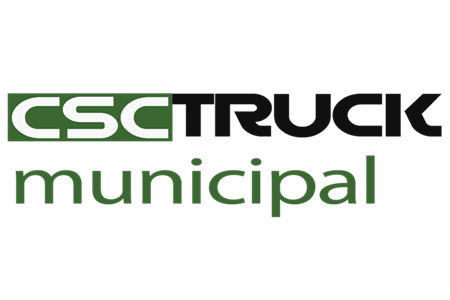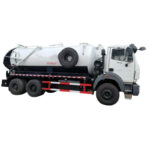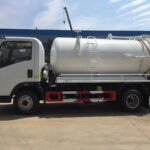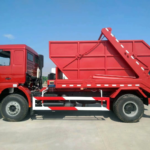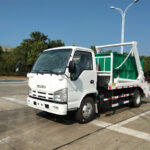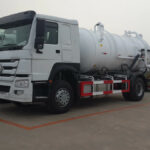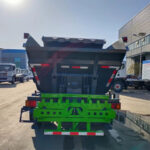In the realm of industrial waste management, the role of sludge collector trucks has become increasingly significant, providing an effective solution for the collection, transport, and disposal of sludge generated from various industrial processes. These specialized vehicles are designed to handle the unique challenges posed by sludge, which can be viscous, heavy, and often hazardous. This article delves into the top features of sludge collector trucks, highlighting their design, operational capabilities, and the technology that underpins their efficiency in industrial waste solutions.
Understanding Sludge Collector Trucks
Definition and Purpose
Sludge collector trucks are heavy-duty vehicles specifically engineered to collect and transport sludge from industrial sites, treatment plants, and other locations where liquid waste is generated. The purpose of these trucks extends beyond simple waste transport; they play a critical role in ensuring compliance with environmental regulations, maintaining public health, and promoting sustainable waste management practices.
Key Components
The essential components of a sludge collector truck typically include a robust chassis, a specialized tank for holding the sludge, a powerful vacuum system for efficient loading, and a reliable pumping mechanism for discharge. Each component is engineered to work in harmony, allowing for the safe and efficient handling of sludge under various operating conditions.
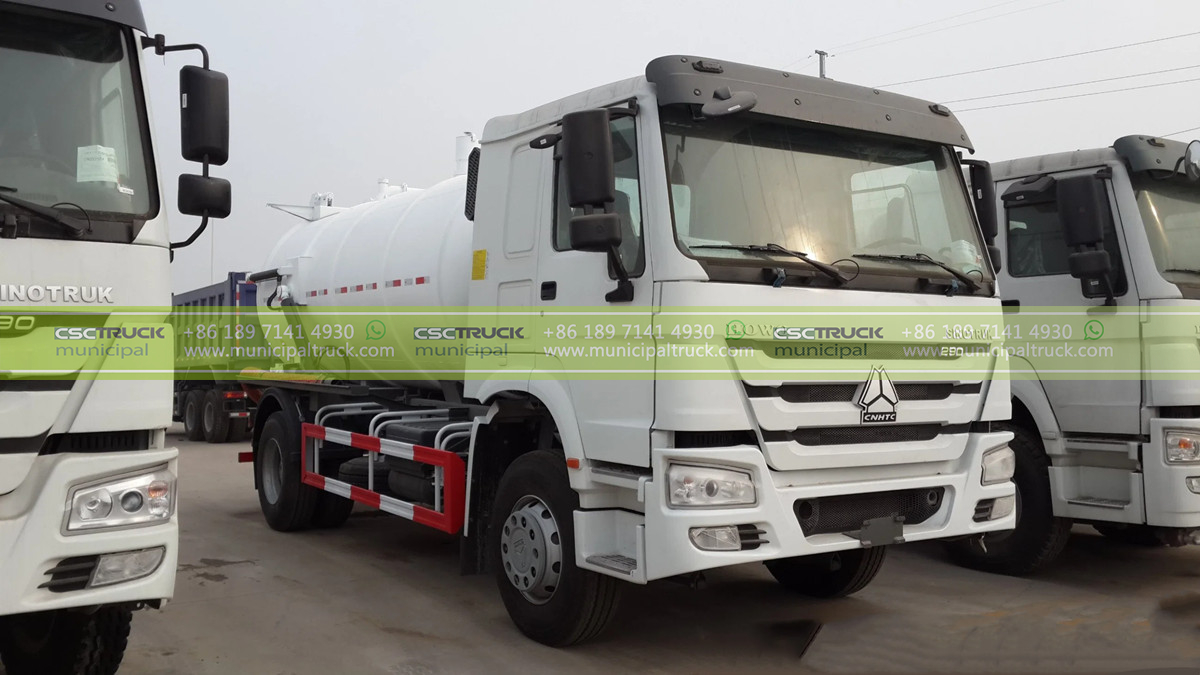
Top Features of Sludge Collector Trucks
1. Advanced Vacuum System
High Suction Power
At the heart of every effective sludge collector truck lies a powerful vacuum system, designed to facilitate the rapid and efficient loading of sludge. High suction power is essential for overcoming the viscosity of sludge, allowing for quick collection from containment ponds, treatment facilities, and industrial sites. This capability not only saves time but also enhances the overall productivity of waste management operations.
Filtration Mechanisms
Modern sludge collector trucks are equipped with advanced filtration systems that prevent contaminants from entering the vacuum pump. These filtration mechanisms are critical for maintaining the integrity of the vacuum system, ensuring that it operates at peak efficiency while prolonging the lifespan of the equipment. The inclusion of replaceable filter elements also allows for easier maintenance, ensuring that trucks remain operational without significant downtime.
2. Specialized Tank Design
Durable Construction Materials
The tank design of sludge collector trucks is engineered to withstand the corrosive nature of certain types of sludge, which can contain a variety of chemical compounds and particulates. Utilizing durable construction materials, such as stainless steel or high-density polyethylene, ensures that the tank remains intact and free from leaks, even under harsh operational conditions. This durability not only enhances safety but also reduces the frequency of maintenance and repairs.
Optimized Tank Shape
The shape and design of the sludge tank are crucial for efficient loading and unloading processes. Many sludge collector trucks feature a tapered or conical tank design that facilitates the flow of sludge during discharge, minimizing the risk of clogs and ensuring a complete emptying of the tank. This design consideration is essential for maintaining operational efficiency and reducing the amount of sludge left behind after each collection cycle.
3. Efficient Pumping Mechanism
Positive Displacement Pumps
Sludge collector trucks are commonly equipped with positive displacement pumps, which are particularly effective for handling viscous materials. These pumps provide consistent flow rates and can handle a variety of sludge types, making them an ideal choice for industrial applications. Their ability to maintain high pressures ensures that sludge can be discharged quickly and efficiently, optimizing the overall waste management process.
Variable Flow Control
The integration of variable flow control systems allows operators to adjust the pumping rate according to the characteristics of the sludge being handled. This feature not only enhances operational flexibility but also helps prevent overloading the system, which can lead to equipment damage or operational inefficiencies. By tailoring the flow rate to specific conditions, sludge collector trucks can operate more effectively across different environments and sludge types.
4. User-Friendly Control Systems
Intuitive Operator Interfaces
Modern sludge collector trucks are designed with user-friendly control systems that allow operators to manage the various functions of the truck with ease. Intuitive interfaces enable drivers to control the vacuum, pumping, and discharge operations seamlessly, reducing the learning curve for new operators and minimizing the risk of operational errors. This ease of use is particularly beneficial in high-pressure industrial environments where quick decision-making is essential.
Remote Monitoring and Control
The incorporation of remote monitoring and control capabilities enhances the operational efficiency of sludge collector trucks. Operators can monitor critical parameters, such as vacuum pressure and tank levels, from a distance, allowing for proactive decision-making during operations. This capability not only improves safety by reducing the need for operators to be in close proximity to potentially hazardous environments but also enhances the overall management of waste collection activities.
5. Robust Safety Features
Spill Containment Systems
Given the nature of sludge, effective spill containment is a vital feature of sludge collector trucks. Many models come equipped with built-in spill containment systems that prevent leaks and spills during transport. These systems are designed to capture any accidental discharges, ensuring compliance with environmental regulations and protecting public health.
Emergency Shutdown Mechanisms
Safety is paramount in the operation of sludge collector trucks, particularly when handling hazardous materials. Emergency shutdown mechanisms allow operators to quickly halt all truck functions in the event of a malfunction or emergency, preventing potential accidents or equipment damage. This feature is essential for maintaining a safe working environment, particularly in industrial settings where the risks associated with sludge handling are elevated.
6. Versatile Applications
Industrial Waste Management
Sludge collector trucks are primarily used in industrial waste management, effectively handling sludge from various sources, including manufacturing facilities, wastewater treatment plants, and food processing plants. Their versatility enables them to adapt to different waste types, ensuring that sludge can be collected and transported efficiently regardless of the source.
Construction and Demolition Sites
In addition to industrial applications, sludge collector trucks are increasingly utilized at construction and demolition sites where liquid waste and sludge may be generated. The ability to quickly and efficiently remove waste from these sites is crucial for maintaining safety and productivity. By integrating sludge collector trucks into construction waste management plans, project managers can ensure that sites remain clean and compliant with environmental standards.
7. Environmental Compliance
Meeting Regulatory Standards
Sludge collector trucks are designed to comply with stringent environmental regulations governing waste management practices. By incorporating features that minimize leaks, spills, and emissions, these vehicles help operators meet the legal requirements associated with sludge disposal. This compliance is essential for maintaining licenses and permits, particularly in industries that are heavily regulated.
Promoting Sustainable Waste Management
In the broader context of environmental responsibility, sludge collector trucks contribute to sustainable waste management practices by facilitating the safe and efficient disposal of sludge. By reducing the potential for environmental contamination and promoting responsible waste disposal methods, these trucks play a crucial role in protecting ecosystems and public health.
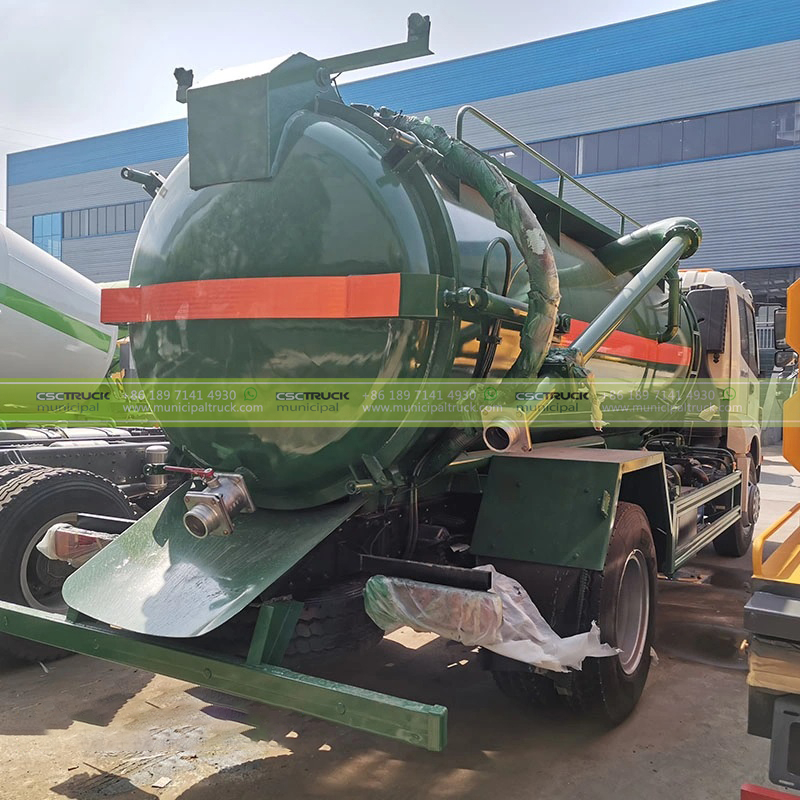
The Future of Sludge Collector Trucks
Technological Advancements
As the field of industrial waste management continues to evolve, sludge collector trucks are expected to benefit from ongoing technological advancements. Innovations in automation, sensor technology, and data analytics are likely to enhance the operational capabilities of these vehicles, making them even more efficient and effective in managing sludge. Future models may incorporate artificial intelligence to optimize routing and collection schedules based on real-time data, improving both efficiency and environmental compliance.
Enhanced Environmental Features
Looking ahead, sludge collector trucks will likely see a greater emphasis on environmental sustainability. This may include the development of electric or hybrid models that reduce reliance on fossil fuels, as well as advancements in materials and design that further minimize emissions and enhance efficiency. As industries increasingly prioritize sustainability, sludge collector trucks will play a pivotal role in supporting these efforts through innovative design and technology.
Integration with Smart Waste Management Systems
The integration of sludge collector trucks into smart waste management systems will be a key development in the coming years. By leveraging data analytics and IoT technologies, municipalities and industries can optimize sludge collection routes, monitor operational performance in real time, and enhance decision-making processes. This data-driven approach will not only improve the efficiency of waste management operations but also contribute to overall sustainability goals.
Expanding Applications
As industries evolve and new applications for sludge management emerge, sludge collector trucks will likely expand their role beyond traditional waste management. They may be utilized in emerging sectors, such as renewable energy production, where sludge is converted into biogas or other forms of energy. By adapting to these new applications, sludge collector trucks will continue to be essential tools in the evolving landscape of waste management.
In summary, sludge collector trucks are indispensable vehicles in the industrial waste management sector, equipped with advanced features that enable efficient and safe handling of sludge. Their design, operational capabilities, and technological innovations not only enhance productivity but also promote environmental compliance and sustainability. As the demand for effective waste management solutions continues to grow, sludge collector trucks will remain at the forefront of industrial waste solutions, driving progress in the industry and contributing to cleaner, safer environments.
